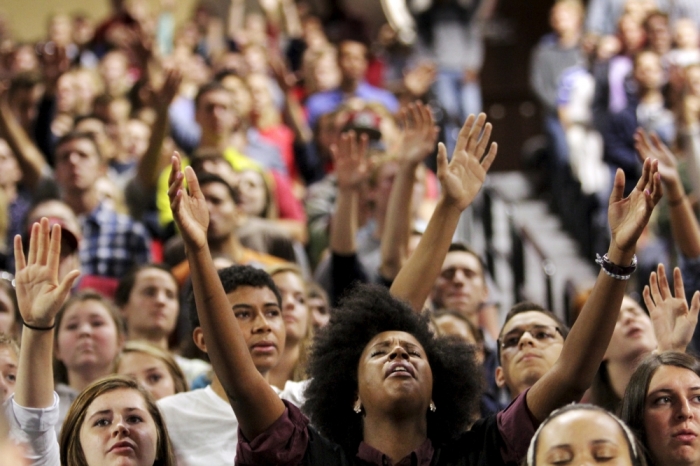59 Percent of Millennials Say Sunday Is Religiously Insignificant; Only 22 Percent Attend Church, Study Finds

The percentage of Americans who believe that the Sabbath is a religiously significant day has sharply declined since 1978, according to a recent poll.
In a survey conducted by YouGov on behalf of Deseret News, 50 percent of respondents said the Sabbath had a religious or spiritual significance. This contrasts to a 1978 Gallup poll when 74 percent of respondents said the same.
In their report, titled "Sabbath Day Observance in the U.S.," Deseret noted that the trend was most prominent among the millennial generation.
"The loss of interest in religious rest is most pronounced among the millennial generation. Only 41 percent of millennials consider Sunday to have religious meaning, compared to 51 percent of Generation X, 56 percent of Baby Boomers, and 58 percent of the Silent Generation," read the report.
"Additionally, millennials are the least likely cohort to attend church. Only 22 percent of millennials report attending church. In fact, 18 percent report working on a typical Sunday."
For the research, YouGov interviewed 1,691 individuals from April 13-15, and then matched down the sample to 1,000 with a 3.1 margin of error.
Kelsey Dallas of Deseret noted that the findings also show members of the Church of Jesus Christ of Latter-day Saints and evangelicals are disproportionately more observant of the Sabbath than the general population.
"Mormons are 28 percentage points more likely than average to spend time in religious meditation and more than 40 percentage points more likely to attend church," wrote Dallas.
"Evangelical Protestants are 15 percentage points more likely than average to go to church and read the Bible on the Sabbath, the survey reported. They are also less likely than others to work in or around the home or to participate in sports or outdoors activities."
Deseret's report on Sabbath observance and perception was part of its annual "Ten Today" series which examines how modern American society treats the Ten Commandments.
"The new survey depicts the modern Sabbath as a day focused on relaxation and errand-running rather than religious commitment," continued Dallas.
"More than 7 in 10 U.S. adults (73 percent) today say they 'take rest and relaxation' on the Sabbath, compared to 63 percent in 1978. Thirty percent of people go shopping, an 11 percentage point increase over nearly 40 years."
Regarding Sabbath observance, Pastor Greg Laurie penned a column for The Christian Post last year in which he noted that neither Jesus nor the Apostles taught people to strictly observe the Sabbath.
"Some have taken the Sabbath and have tried to turn it into a law that Christians should keep. But the Bible addresses this in Colossians 2:16–17, saying, 'So let no one judge you in food or in drink, or regarding a festival or a new moon or sabbaths, which are a shadow of things to come, but the substance is of Christ,'" Laurie wrote.
"The Sabbath was pointing to and was fulfilled in Jesus. One word could sum up our faith: done. It was done for us by Christ on the cross."




























